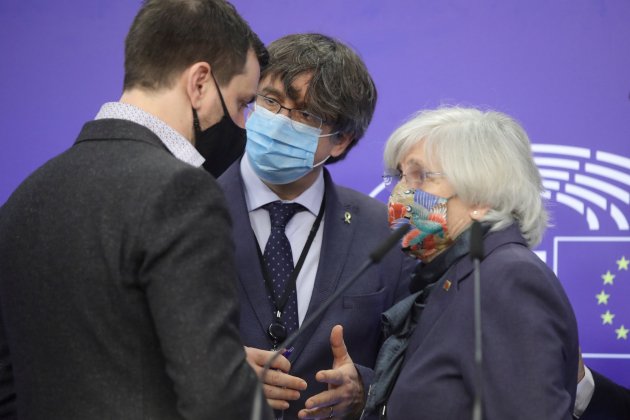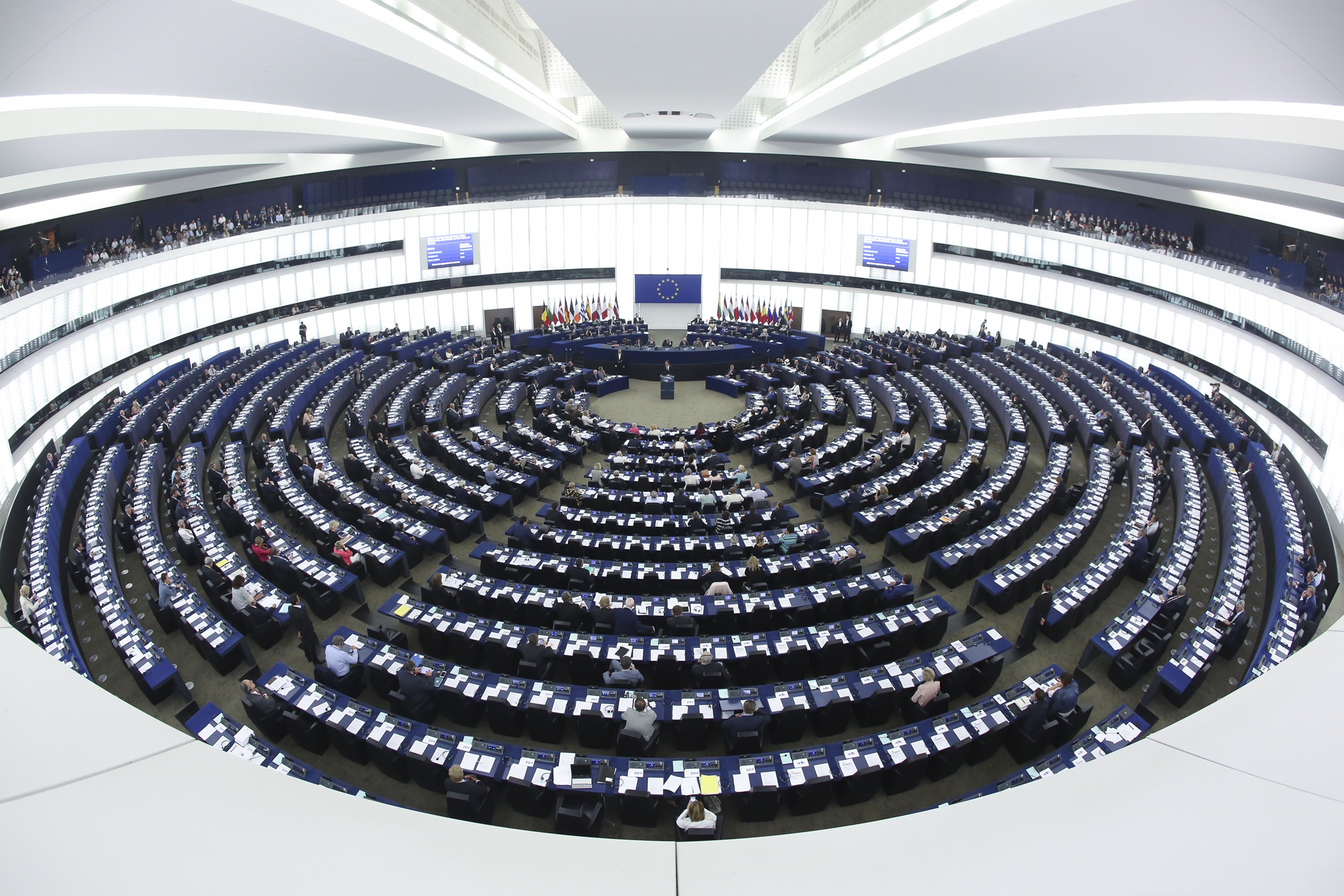There are fears at the European Parliament that EU courts could reverse the chamber's decision if it votes to waive the parliamentary immunity of the three Catalan MEPs Carles Puigdemont, Toni Comín and Clara Ponsatí. The concerns are due to perceived "irregularities" in the process. “There is strong concern in the house about the lack of rigour in the procedure,” parliamentary sources have told the ACN agency.
In fact, the chamber is concerned about the implications of a possible judicial appeal by the three pro-independence representatives. “It could embarrass the institution,” the sources say. They also claim that the president of the European Parliament, David Sassoli, warned the chairman of the Committee on Legal Affairs, Adrián Vázquez, that the request needed to be handled "in accordance with the law". In Vázquez's party, Ciudadanos (Cs), any such warning is denied.
Sources in Cs affirm that over the last month the only contact Vázquez has had with Sassoli was to agree on an investigation into the leaking to Spanish daily ABC of the report on the Puigdemont immunity case. On the other hand, other sources claim that the warning from the presidency was sent a month and a half ago, that is, before the leak. The plenary of the European Parliament must vote next week on waiving the immunity as MEPs of Puigdemont, Comín and Ponsatí. Parliamentary sources have said to the ACN that the vote could be held next Wednesday, March 10th. However, the final agenda has to be decided with the political groups this week.
 Image: Toni Comín, Clara Ponsatí and Carles Puigdemont in the European Parliament / EFE
Image: Toni Comín, Clara Ponsatí and Carles Puigdemont in the European Parliament / EFE
The intention is for the chamber to vote on lifting the immunity of the three pro-independence politicians, despite the error pointed out by MEP Clara Ponsatí in which the Committee on Legal Affairs approved a report on her case which got the facts wrong, asserting that she is accused of misuse of funds by the Spanish Supreme Court when she is only wanted for sedition. Ponsatí questions whether a mere correction of the text is sufficient after a vote has already been taken on it and has asked Sassoli to take "measures" to rectify the damage caused.
Parliamentary sources acknowledge the dissatisfaction over this mistake, which comes in addition to other controversies, such as the leaking of the report on Puigdemont's case. They also have doubts about the "impartiality" of both the chairman of the Committee on Legal Affairs, Adrián Vázquez, and the rapporteur who drafted the report proposing the lifting of immunity, the Bulgarian ultraconservative Angel Dzhambazki. In this regard, they say that Sassoli contacted Vazquez to convey this concern.
Threat of court action
The Together for Catalonia (Junts) party, which the three Catalan MEPs represent, has repeatedly raised the prospect of taking the case to the European Court of Justice since the hearings on lifting the MEPs' immunity began. Puigdemont's party sees "irregularities" in the procedure like "the lack of impartiality" of the chairman of the committee and the rapporteur in the case, the merging of the three cases into one, and the vote approving an erroneous report in the case of Ponsatí. Sources in Junts also complain that “much” of the documentation they provided for the case has not been translated, and that the jurisdiction of the Spanish Supreme Court to issue the request - already in question after the Lluís Puig case - has not been discussed in this instance.
Puigdemont, Comín and Ponsatí are even considering asking the EU Court of Justice (ECJ) for interim measures if the European Parliament waives their immunity. Parliamentary sources are concerned about this judicial battle due to the "irregularities" they have seen in the immunity waiver procedure and, especially, given the outcome of the ECJ case on another Catalan MEP, Oriol Junqueras, in 2019. According to other parliamentary sources, the chamber's legal services are not analyzing the situation for the moment. In fact, they say, the parliamentary legal advisers “do not come into play” until an appeal is brought to the EU courts.
Image: The European Parliament / ACN

